Taking ‘Superman’ to School
This depiction of our nation’s teachers is typical of those who promote a particular reform agenda calling for charter schools, anti-unionism and merit pay based on high-stakes test scores While it’s fine to promote this agenda, it’s also ethical to provide a balanced critique.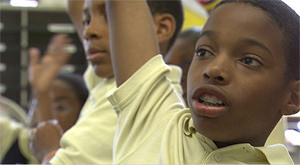
The greatest thing about public school is that it is, in fact, public. Anyone can attend and everyone has the opportunity to achieve. I have been a public school student and educator and I’ve had the privilege of encountering learners of all kinds: from brilliant artists, math whizzes and persuasive communicators to those who can barely read or need calculators to figure out the answer to 1 x 9. As a result, I think my experience in public education is similar to that of many of my dedicated colleagues across the nation: both highly rewarding and deeply depressing.
Unfortunately, none of these experiences were reflected in Davis Guggenheim’s new documentary “Waiting for ‘Superman.’ ” Instead we get an appeal to educational reform based on a story about really bad teachers. Teachers who sleep while on the job, teachers who ignore parents who want to be involved, teachers who are chronically late or even abusive to their students. What’s more, all of these teachers hold on to their jobs because they’ve been awarded tenure and are members of unions that fund candidates on both sides of the aisle. The worst of the worst teachers are referred to and ridiculed as “lemons,” “turkeys” and “trash.” And the few positive depictions we get of public school teachers come from edited clips from Guggenheim’s now-11-year-old documentary “The First Year,” suggesting that quality public school teaching is, at best, a thing of the past.
But this depiction of our nation’s teachers is typical of those who promote a particular reform agenda calling for charter schools, anti-unionism and merit pay based on high-stakes test scores. While it’s fine to promote this agenda, it’s also ethical to provide a balanced critique. In addition to a conspicuous absence of current public school teachers in this film, at no time does anyone interviewed suggest that blind faith in data that conflates test scores with achievement could be misplaced. And while everyone believes that no child should be left behind, no one apparently believes that failing teachers can be rehabilitated with the proper training. Coincidentally, no one makes the connection that many of today’s “lemon” teachers were educated in a public school system that has been in disrepair since at least the 1970s (if we take Guggenheim at his word)—so it could also be the case that the education system’s chickens are coming home to roost.
With these teacher-villains firmly in place, Guggenheim moves on to present audiences with education’s heroes and victims. First we meet parents who will exhaust all resources to secure a quality education for their children. We meet girls and boys of color (and not young white males) who tell of their dreams of becoming a veterinarian, a teacher, a college student, a good provider and even “a recorder like you guys.” These children and their parents are forced to submit to the humiliating and ridiculous process of charter school lotteries, which lead us to believe that their fates are simply a matter of luck. In order to demonstrate the odds that these youths face if they remain in public schools, Guggenheim presents startling statistics in the form of animated shorts: shockingly low literacy scores, growing dropout rates, pitfalls of tenure, and the United States’ bottom-of-the-barrel academic performance compared with other industrialized nations.
Enter the heroes — school chancellors and charter school administrators like Michelle Rhee and Geoffrey Canada. Since 2007 Rhee has taken bold steps to reform public education in Washington, D.C. For starters, she closed more than 20 underperforming public schools and fired hundreds of teachers. Her most drastic change was an attempt to persuade the local teachers union to replace tenure with merit-based salaries of more than $100,000 per year. This move angered teachers, their union and many parents who were forced to find new schools for their children. Despite these setbacks, Rhee remains determined to make this system work for its student clientele and not just for teachers and the bureaucracy they represent. However, it should be noted that Rhee recently resigned.
Geoffrey Canada has taken a different approach. Rather than initiate reform from within the current system, he founded his own charter school, Harlem Success Center. Like other wildly successful charter schools, Harlem Success boasts a 90 percent graduation rate based on more intense education, longer school days, more access to teachers and current learning technologies. Despite these successes, a June 2010 study by the Institute of Education Sciences made some shocking revelations: On average, study charter schools did not have a statistically significant effect on student achievement; charter schools were more effective for lower-income and lower-achieving students and less effective for higher-income and higher-achieving students; no significant differences in charter school impacts for other student subgroups—such as those defined by race, ethnicity and gender.
In fairness, the picture Guggenheim paints addresses many symptoms of today’s ailing public education system. Unfortunately, it fails to diagnose the cause of the problem: a lack of teacher training stemming from lack of respect for the profession, and a lack of attention to out-of-school factors that affect students’ lives. We can train teachers only by talking to teachers and finding out what works best. Shutting teachers out of the conversation will accomplish nothing except ensuring their continued vilification and failure. Guggenheim’s social action plan and President Barack Obama’s Race to the Top program should also include teacher education and dialogue. Maybe we could find a more holistic solution to our nation’s educational problems if we placed as much faith in the idea that educators can be taught to teach as we do in the idea that all students can be taught to learn.
Your support matters…Independent journalism is under threat and overshadowed by heavily funded mainstream media.
You can help level the playing field. Become a member.
Your tax-deductible contribution keeps us digging beneath the headlines to give you thought-provoking, investigative reporting and analysis that unearths what's really happening- without compromise.
Give today to support our courageous, independent journalists.
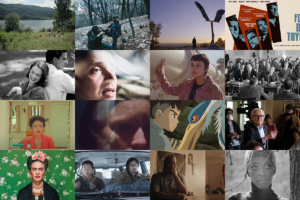
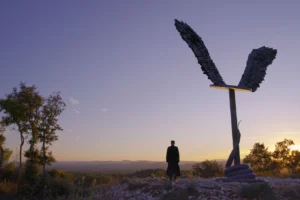
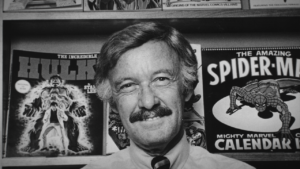
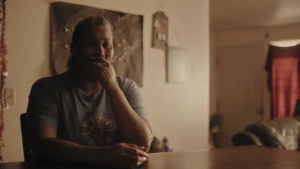

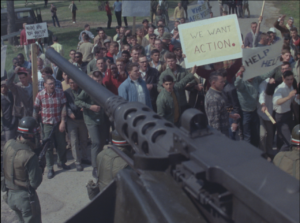
You need to be a supporter to comment.
There are currently no responses to this article.
Be the first to respond.